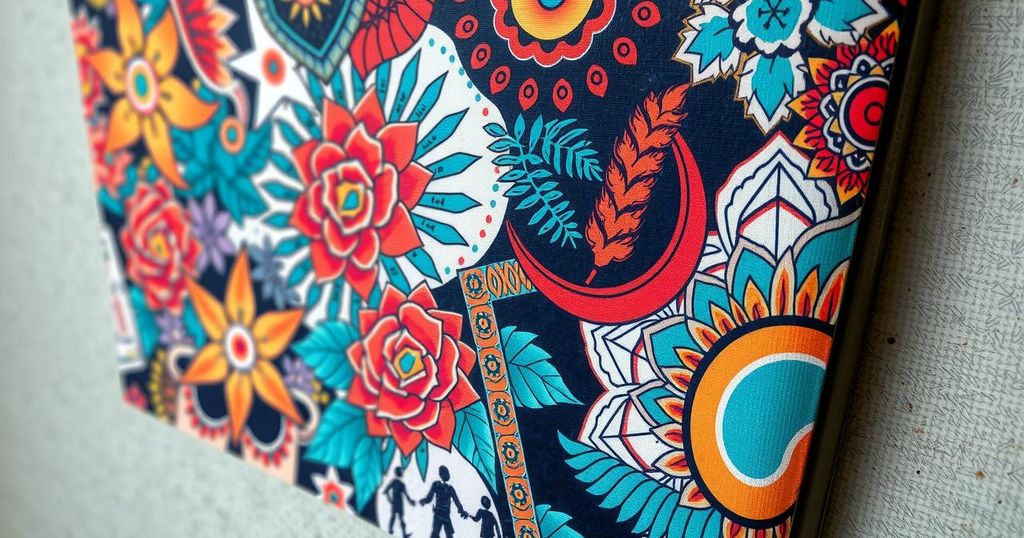Venezuelan Migrants Wrongly Labeled as Gang Members Due to Tattoos

Families and lawyers of Venezuelan migrants accuse U.S. authorities of mislabeling individuals as gang members based on their tattoos, leading to wrongful deportations to a notorious jail in El Salvador. These claims are backed by testimonies asserting a lack of criminal records, while officials cite tattoos as evidence of gang affiliation. Legal efforts are underway to secure the migrants’ release amidst concerns over due process.
Relatives and legal representatives of Venezuelan migrants, now held in a notorious jail in El Salvador, assert that these men were wrongly categorized as gang members and terrorists due to their tattoos. Jhon Chacin, a 35-year-old professional tattoo artist, was apprehended at the Mexican border for illegal entry into the United States and later appeared in a video showing chained prisoners at a maximum-security facility in El Salvador.
Chacin, along with 238 others, was labeled as part of Venezuela’s Tren de Aragua, a group designated as a terrorist organization according to U.S. law. His sister Yuliana expresses her conviction that his tattoos, featuring flowers and family names, led to his wrongful designation. Prior to deportation, Immigration and Customs Enforcement (ICE) agents allegedly told him he belonged to a criminal gang because of his body art.
Family members of other deported Venezuelans, such as 23-year-old Edwuar Hernandez Herrera, echo similar sentiments, stating that tattoos do not equate to criminal behavior. Herrera’s mother and friends argue that his tattoos, which commemorate his loved ones, should not cause him to be considered a criminal.
Despite a lack of clear evidence from U.S. authorities to support gang membership claims, a senior ICE official acknowledged many deported men had no criminal records. Department of Homeland Security spokesperson Tricia McLaughlin cited tattoos as indications of gang affiliation, stating that they assess cases comprehensively. An instance involves soccer player Jerce Reyes Barrios, whose tattoo of a crown is claimed to suggest gang ties.
In September 2024, Texas authorities released a report identifying tattoos linked to Tren de Aragua membership; however, expert Ronna Risquez indicates that tattoos do not significantly symbolize gang belonging among its members in Venezuela, contrary to the practices observed in El Salvador’s gangs.
Former President Donald Trump claimed these migrants underwent rigorous vetting but acknowledged the possibility of misidentification. He emphasized the importance of reviewing any mistaken associations. Meanwhile, Venezuelan authorities are seeking legal assistance to advocate for the migrants’ release, as an estimated eight million Venezuelans have left their country in recent years due to severe economic hardships and authoritarian governance, with many now residing in the U.S.
The situation surrounding the deportation of Venezuelan migrants to El Salvador raises significant concerns regarding the role of tattoos in misidentifying individuals as gang members. The testimonies from family members highlight the lack of substantial evidence linking these individuals to criminal activity. Furthermore, the contrasting cultural implications of tattoos in Venezuela versus El Salvador underscore the complexity of this situation. The legal efforts initiated by Venezuelan authorities aim to address these concerns and seek justice for the affected migrants.
Original Source: www.kten.com







